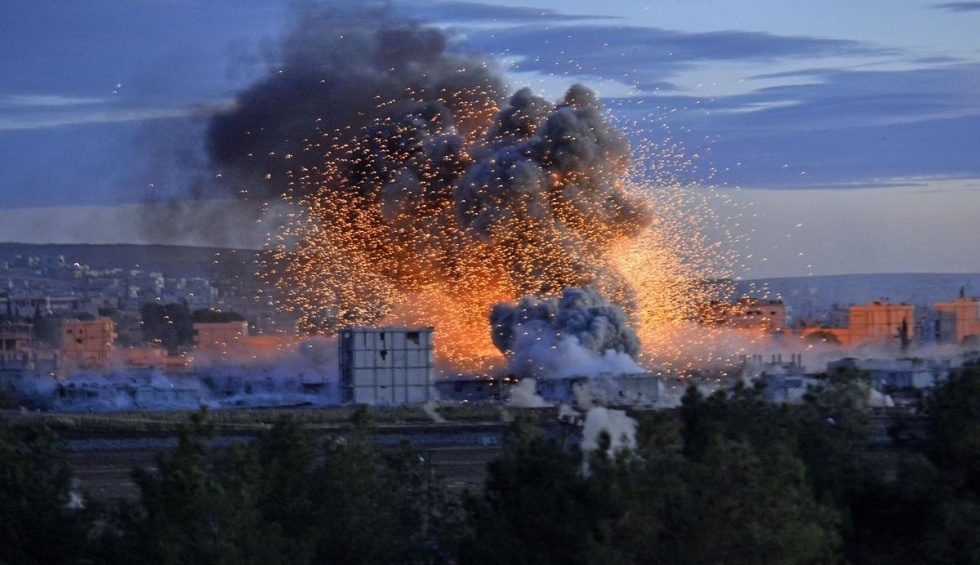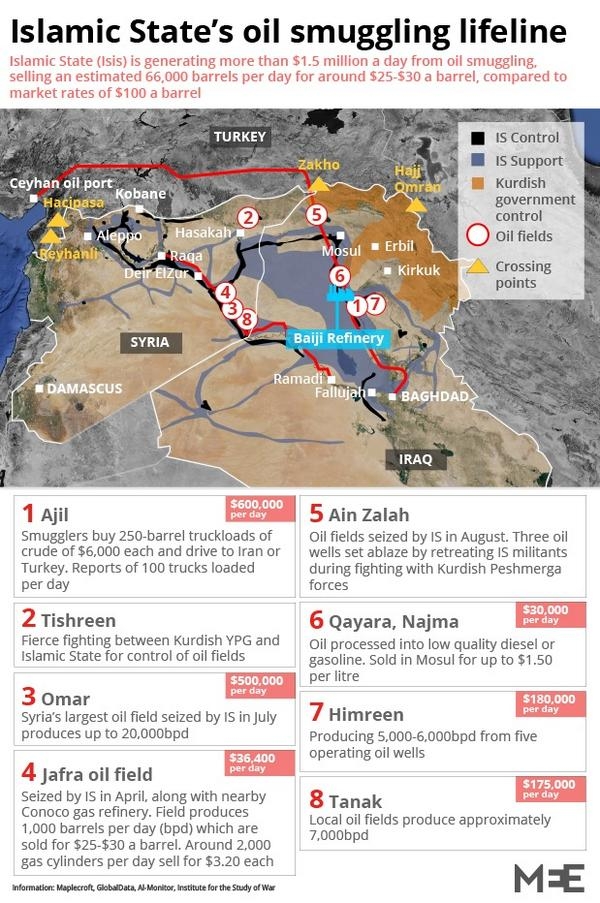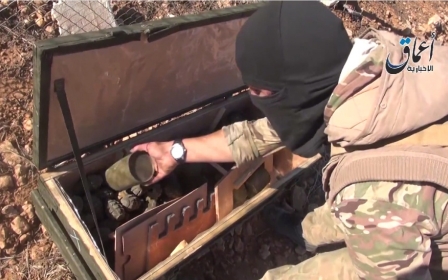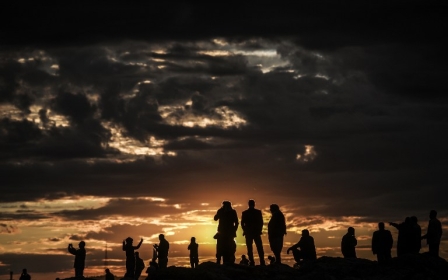IS halts Kobane advance following heavy air strikes: US

A bid by Islamic State fighters to seize the flashpoint Syrian border town of Kobane has stalled once again, American officials said, with the help of air strikes that reported to have killed more than 500 militants in the last month.
US and allied aircraft have flown nearly 6,600 sorties in the air war against the Islamic State (IS) group and dropped more than 1,700 bombs, the American military said Thursday.
The latest tally was released one month since the US-led coalition extended its air campaign from Iraq into Syria in a bid to counter the advance of the Islamic State group.
The effect of the open-ended air campaign remains the subject of debate, however, with the White House saying the militants have been damaged by the strikes but critics pointing to the group's battlefield successes despite the raids.
In Washington, Pentagon chief Chuck Hagel acknowledged "mixed" results in the war effort but said: "We believe that our strategy is working."
Since IS launched a massive offensive in June, it has managed to seize vast swathes of territory in Iraq and Syria, including many oil-rich regions which have led US authorities to call IS the world's wealthiest "terror" group.
'Kurdish defenders can hold Kobane'
The Kurds in Kobane - which has become a crucial battlefield for both the IS and their opponents - have been holding out for more than a month, buoyed by a promise of Iraqi Kurd reinforcements and by US air drops of weapons.
"I think the Kurdish defenders... are going to be able to hold," a defence official at US Central Command said, speaking on condition of anonymity.
Kurds say their fighters are exhausted and anxious for promised reinforcements from Iraq's autonomous Kurdish region.
Lawmakers there agreed Wednesday to send their Peshmerga fighters after Turkey said it would allow 200 of them to travel through its territory to Kobane, where IS has an estimated 1,000 militants.
On the ground, IS also appeared to be making fresh advances in and around Kobane, said the Syrian Observatory for Human Rights, a UK-based watchdog.
Reports emerged on Thursday that the group had seized several villages near the border town but Al Jazeera Arabic reported on Friday morning that Kurdish fighters had won back some ground.
IS, however, continued to make inroads in Iraq with further advances reported in the Anbar province
US military officials delivered sobering news from Iraq, saying the Iraqi army is still months away from staging a major offensive to retake ground lost to IS and is regrouping after suffering battlefield defeats this year. But despite the US and several other countries sending military advisors and even troops to train Iraqi forces, Iraqi security services were still "months" away from being able to launch a counter-attack, the official said.
'World's richest terrorists'
The group's combat prowess and ability to not only seize but hold onto large swaths of territory has at least partially been attributed to its control over oil fields that have allowed the group to generate up to $1m in oil revenue a day.
David Cohen, the US Treasury undersecretary for terrorism and financial intelligence, said that IS group's "primary funding tactics enable it today to generate tens of millions of dollars per month".
Oil has also been sold to Kurds in Iraq, and then resold to Turkey, as the group has "tapped into a long-standing and deeply rooted black market connecting traders in and around the area", said Cohen.
Even Syrian President Bashar al-Assad's regime has "made an arrangement to purchase oil" from the group, he said.
Marwan Muasher of the Carnegie Endowment for International Peace said the IS group was now "considered the world's wealthiest and most financially sophisticated terrorist organisation".
Middle East Eye propose une couverture et une analyse indépendantes et incomparables du Moyen-Orient, de l’Afrique du Nord et d’autres régions du monde. Pour en savoir plus sur la reprise de ce contenu et les frais qui s’appliquent, veuillez remplir ce formulaire [en anglais]. Pour en savoir plus sur MEE, cliquez ici [en anglais].




